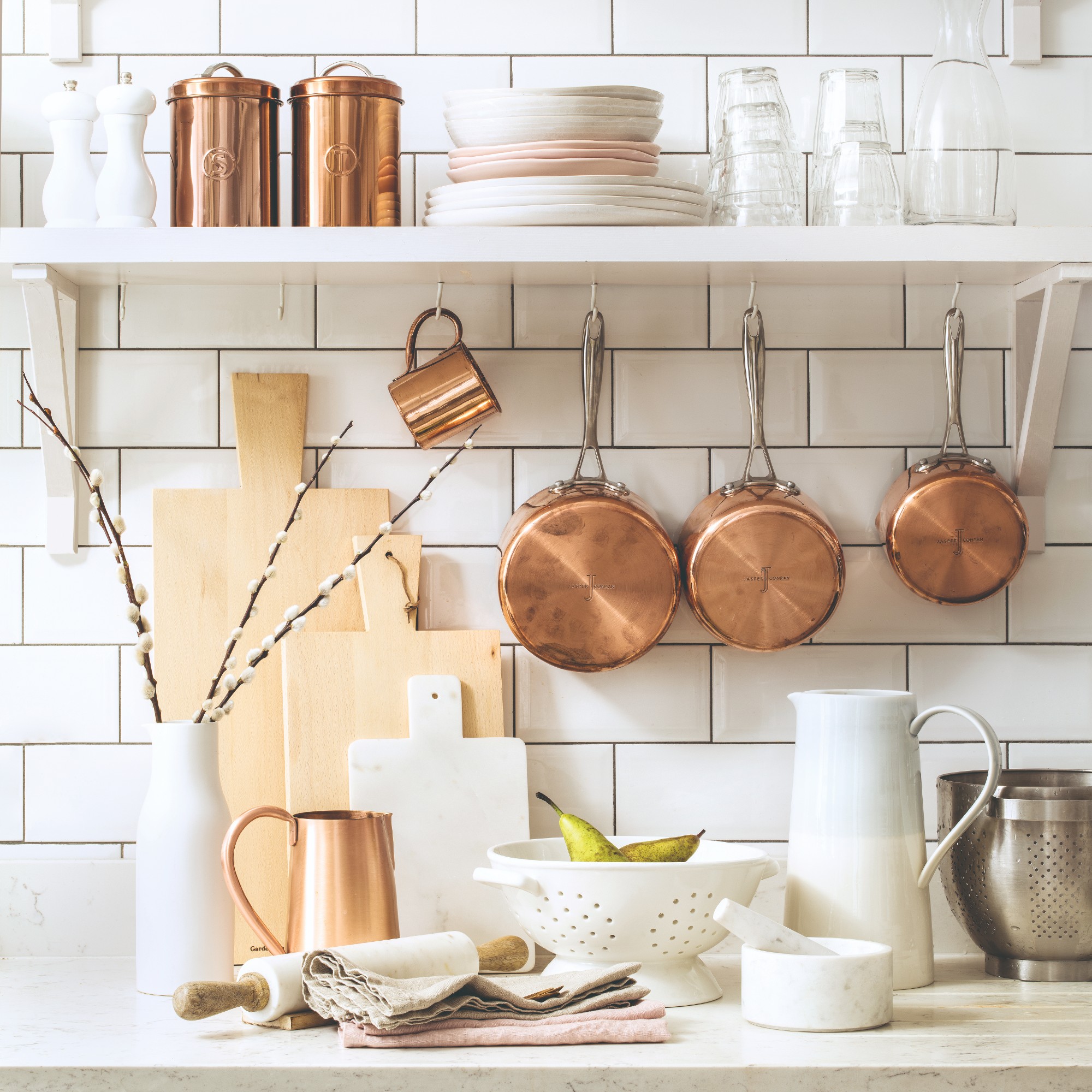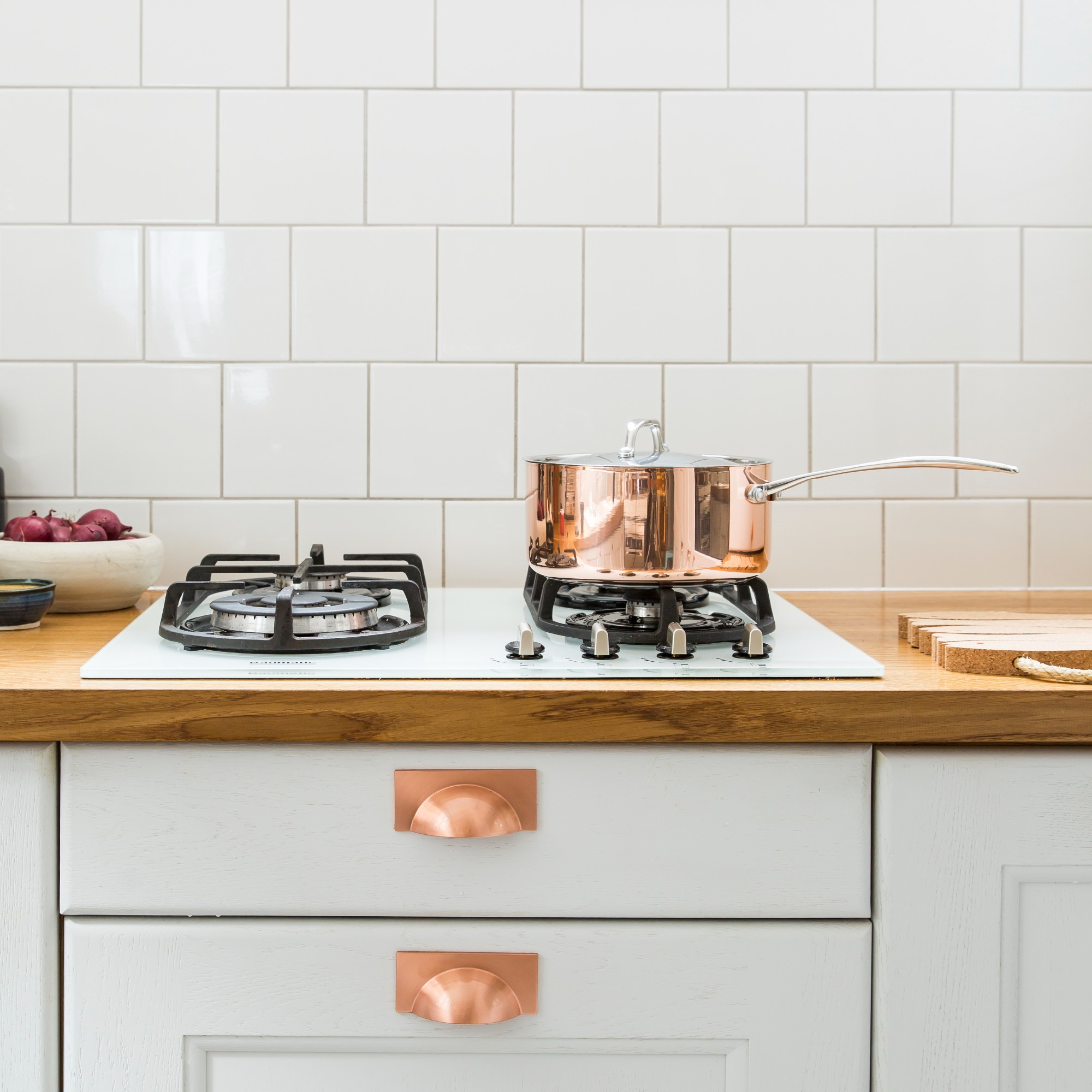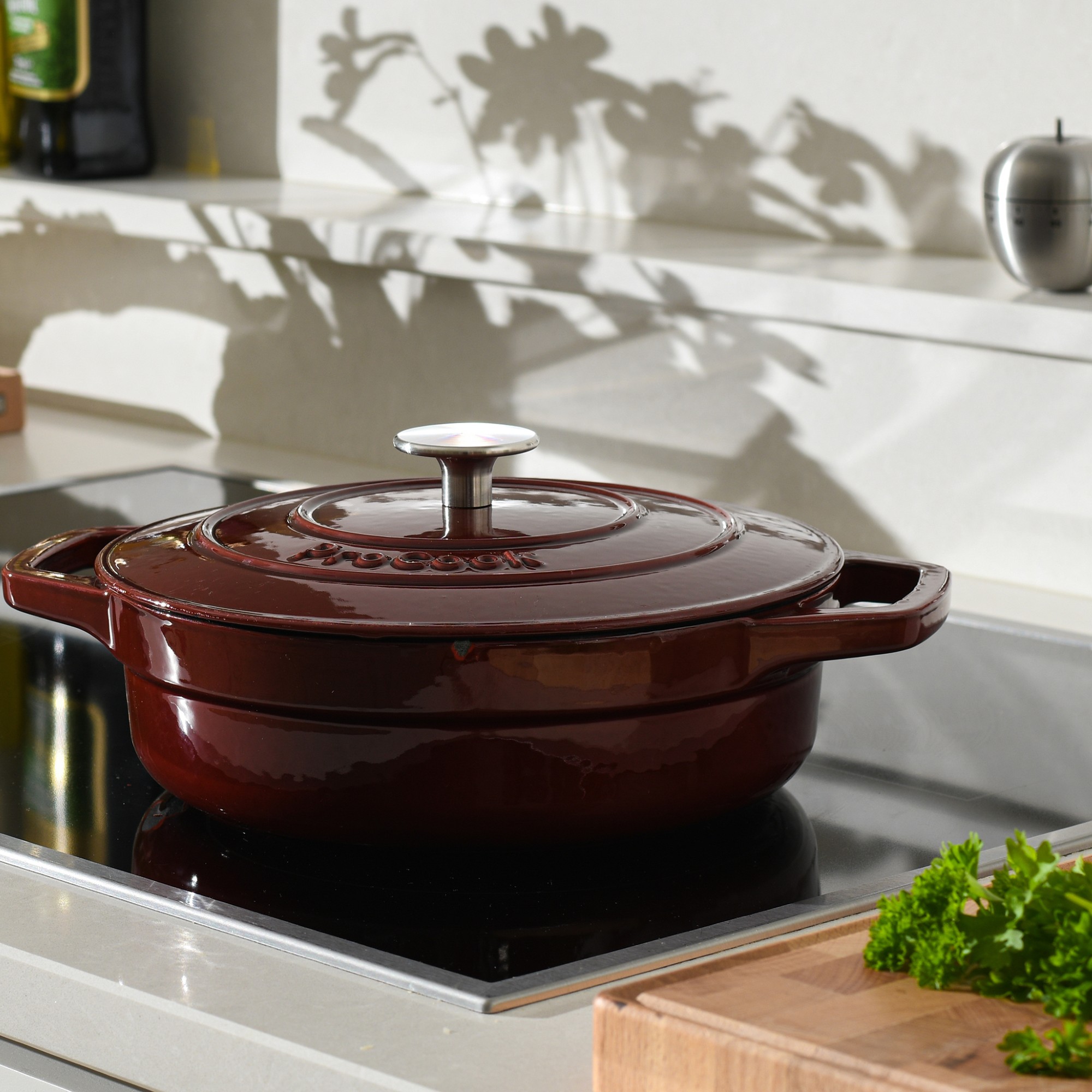
We’ve all done it. We’re talking about rinsing or soaking a pan straight off the stove while it’s still piping hot using a stream of cold water to save time and quickly cool it down. But it turns out that if you rinse hot pans with cold water it can cause irreversible damage to your cookware.
If you’re the host or hostess this Christmas season, whipping out your best saucepans to cook up a storm for your family and guests, we can only recommend to steer clear of this major mistake.
As do the experts, explaining exactly why you shouldn’t do it and what to do instead. This way you can keep your pots and pans in top condition, looking their best for years to come.

Why you shouldn’t rinse hot pans with cold water
Whether you have the best non-stick frying pans or stainless steel pots, no cookware should be rinsed or soaked with cold water while still warm from cooking. As this can cause staining and decrease the pan’s functionality and quality, whether that happens instantly or over time.
‘It's best to avoid rinsing hot pans with cold water when they’re still warm or hot because rapid temperature changes can warp the metal and affect the pan's quality over time,’ says Petya Holevich, Fantastic Services' house cleaning expert and supervisor.
‘Rinsing hot pans with cold water can lead to thermal shock, which occurs when there's a sudden and drastic temperature change, causing the metal to contract or expand rapidly. This is what causes warping, cracking or other types of damage to the pan's structure. The bigger the temperature difference is, the bigger the thermal shock will be.’

Cast iron cookware at the biggest risk
And while doing this causes damage to all kinds of pans of all materials, even the best cast iron cookware is at the biggest risk.
‘With cast iron cookware, it can also cause cracking or loss of the enamel,’ says Joe Authbert, buying manager at ProCook. And that could render them unusable.
Petya adds, ‘It's especially important to be careful with cast iron pans because they’re more susceptible to thermal shock. Similarly, sudden temperature changes can damage the coating of nonstick pans over time.’

What to do instead
Instead of rinsing with cold water straight after taking it off the heat, let the pan cool down before rinsing it or use warmer water that more closely matches the temperature of the cookware.
‘We always advise users to allow their cookware to cool before cleaning and rinsing as this will prevent damage being caused,’ Joe says.
‘It’s highly recommended to allow the pan to cool down slightly before rinsing it or use lukewarm water to avoid damaging it,’ advises Petya.
And that’s how to best clean stainless steel pans and just about every other type of cookware if you want to avoid making this potentially expensive mistake.







